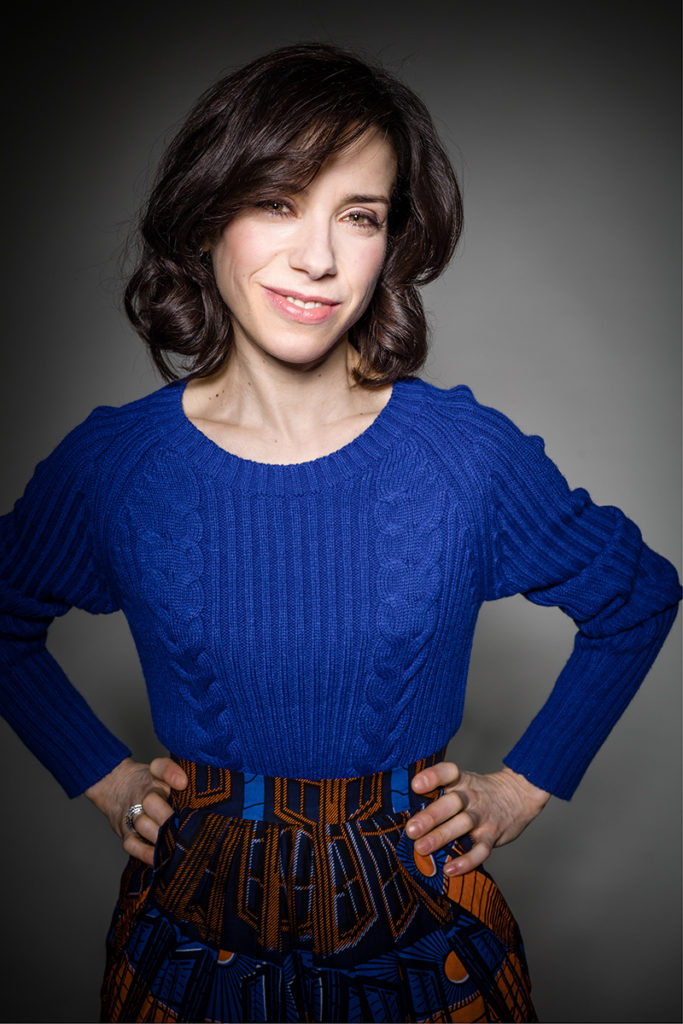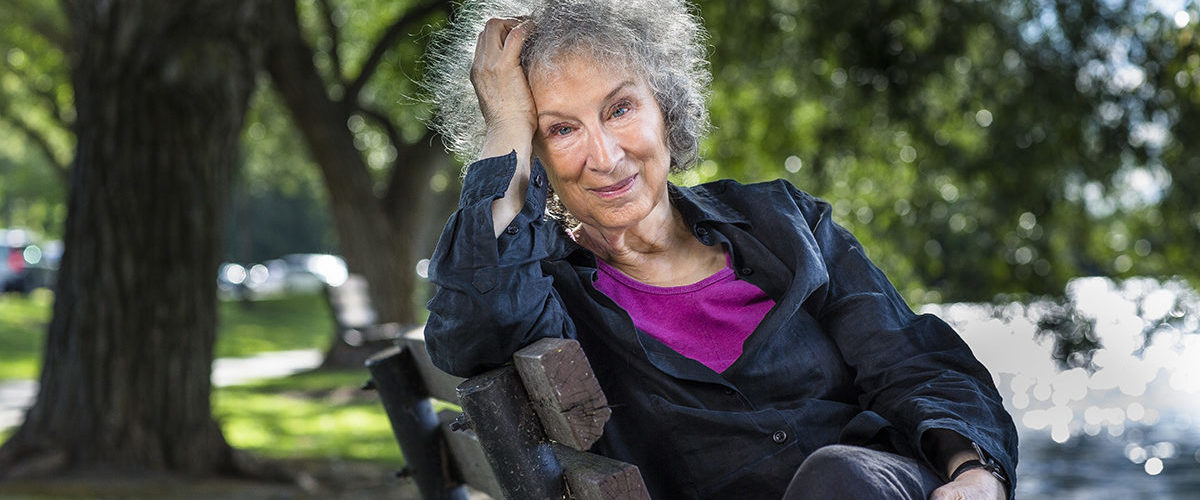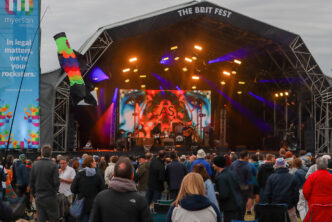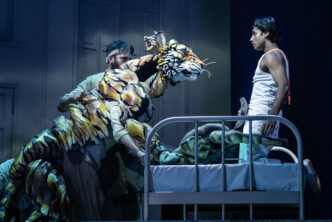Ahead of Margaret Atwood’s visit to The Lowry in October, fans get a taste of what to expect as the author’s live event at London’s National Theatre is screened live to 1,000 cinemas world-wide – including the Lowry Vue Cinema.
In Margaret Atwood Live, the author takes to the stage for an hour and 50 minutes to discuss her latest book, ‘The Testaments’ a sequel to her popular Handmaid’s Tale, first published in 1985 and now an Emmy Award-winning television series.
A cultural phenomenon, Margaret’s handmaids have become a symbol of women’s rights and a protest against misogyny and oppression. And in this sequel, she picks up the story 15-years after Offred stepped into the unknown, answering questions readers have asked for decades, with the explosive testaments of three female narrators from Gilead.

The evening is divided into distinct sections: a documentary short; book readings (by Ann Dowd, Sally Hawkins and Lily James); an interview Q&A session (with Samira Ahmed) and a poem read by Atwood herself.
Host, Samira Ahmed neatly threads together each of the constituent parts. Her enthusiasm when introducing both Margaret and the documentary, scheduled for release in November of this year, is palpable. The documentary is a snapshot biography of the now 79-year-old author. We’re shown still photos of Margaret taken throughout her life, while a narrator tells of her life-long interest in words and stories – by the age of seven she’d written her first novel, and an illustrated one to boot! In her own self-deprecating manner Margaret proclaims, ‘It wasn’t very good’, but this sign posted the prodigious talent to come.
Book readings follow – the first was by Ann Dowd who reprises the part (from the audio book) of ominous Aunt Lydia who survives the first novel and is one of three narrators in The Testaments. Book-in-hand, Dowd stands on a stage and reads an extract, her Testament, providing an insight into the character she’s become.
When Margaret and Samira take to the stage (the former in the now trademark blue, green and purple colours of the new book; and the latter in black) it’s explained that this sequel to the original exists to explore the influence of power and the abuse of power. Specifically, how those who are excluded from power can rise and eventually wield it. The example used is that of Thomas Cromwell, the son of a butcher who rose to become Chief Minister to Henry VIII. In Margaret’s dystopia it’s women who are excluded but Aunt Lydia, like Cromwell, is able to succeed. Her achievements are however won at the detriment of others – the others include women. It’s explained that this is a common motif of totalitarian societies first destroy the liberals then expunge those that pose a thread to your power base.
Samira’s teasing investigative style trod a fine line – on the one hand identifying the major themes addressed in the novel without triggering the ‘spoilers’ the audience clearly wanted answers to. e.g. what became of Offred? What exactly is Agnes’ and Daisy’ lineage?
Margaret has a calm, knowing tone when she shares her anecdotes. She is quick to signpost the fact that one of the inspirations for The Handmaids Tale was reading George Orwell’s 1984 and Aldus Huxley’s Brave New World. The issue here is each of these stories is told from a male perspective. In her words, she wanted to flip this convention and place women centre stage. Women exist. They have a voice. They also have frailties and dimensions. For the disbelieving reader she underscores her writing by convincingly stating that everything that’s happened in her world of Gilead has happened somewhere and to someone in reality.
Margaret is driven and inspired by words but not in the way some authors are. She recoils at the idea that they should introspectively exist for their own sake. Words should serve a purpose and that purpose should be a call to action. The Handmaids Tale was released in the 80’s as a response to the abuses of power that were wending their way through society during that period. When asked why that Testaments hadn’t been written earlier, she talks about an optimism in the 90’s that suggested that society was progressing. Then 9/11 happened. The Financial Crisis hit and uppermost on her list – the climate emergency. Margaret’s a genuine environmentalist. She believes when climate emergencies are triggered and go unchecked resources become scarce. This leads to societal tensions. In these circumstances women and children invariably suffer most. The Testaments is her wake-up call to these events.

The second readings follow shortly afterwards. Special guests, Sally Hawkins and Lily James read the testaments of the books two other narrators. Two teenagers: Daisy who was rescued from Gilead and who’s living in Toronto and Agnes who grew up in Gilead and has never known any other form of truth. Margaret confirms that each narrator provides a distinct viewpoint of their ‘near future’ and their actions and life experiences are the engine for this chapter of the journey. We the audience are tantalisingly left wondering what really did happen to Offred and whether both or either Agnes or Daisy could be her daughter. Their ages tie up. The time-line between the two stories tie-up. However, Margaret demands we come to our own conclusions.

The evening ends with Margaret reading her poem ‘Spelling’ – “A word after a word after a word is power”. She explains that often her poetry is the springboard for what later becomes a fully-fledged novel. Overall this was a well-structured and well-paced evening, delicately balancing literary, geopolitical, social and environmental issues in an engaging manner.
Margaret Atwood Live in Cinemas was screened at the Lowry Vue Cinema on 10 September 2019. Margaret Atwood Live on Stage tour is coming to The Lowry, Salford Quays on 27 October 2019. For full tour details visit www.margaretatwoodlive.com
Who Cares? Matt Woodhead shines a light on the hidden lives of young carers.





